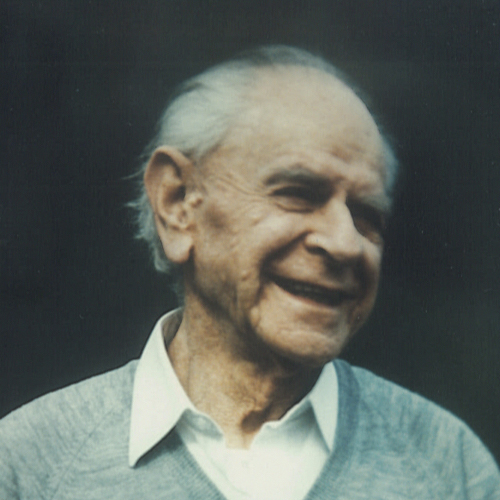
Your complimentary articles
You’ve read one of your four complimentary articles for this month.
You can read four articles free per month. To have complete access to the thousands of philosophy articles on this site, please
Philosophical Haiku
Karl Popper (1902-1994)
by Terence Green
From planning spare us.
From ignorance set us free.
From falsehood comes truth.

Karl Popper © Doriankbandy 1987 CC
Sir Karl Popper was born into a Viennese Jewish family that had converted to Lutheranism – not out of any devout belief, but because they wanted to be invited to all the best parties. His father enjoyed a good book, and so collected about twelve thousand of them.
Like A.J. Ayer, Popper was initially influenced by the Vienna Circle of philosophers of the early twentieth century. But he came to reject their ‘principle of verification’ (we can know that an idea is true only if it can be verified) on the basis that, no matter how many times you confirm a fact by observation, somewhere or sometime there might be a contrary case. So, he said, generalisations from observations are only useful for science if they can in principle be falsified – that is, potentially shown to be wrong through a contrary observation.’The sun rises every day’ is a useful generalisation, because in principle it can be proven wrong – by the sun failing to rise on a particular day. On the other hand, an untestable statement such as ‘God prefers coffee to tea’ isn’t useful, because it could never be falsified. However, until it’s proven wrong, it’s reasonable to proceed on the assumption that a highly-confirmed observation is correct.
Popper wasn’t just concerned with what might seem like arcane philosophical problems. Having witnessed the dangers of totalitarian regimes, he feared any political system that gave all the power to politicians and bureaucrats to decide on our behalf how society is to be shaped. Anyone, he said, who claimed to be able to create an ideal society was both deluded and dangerous. Revolutionary politics, no matter how well-intended, invariably have unintended consequences: no one can foresee precisely how things will pan out, and more often than not, they pan out badly. Only an ‘open society’, in which citizens can freely criticise policies and peacefully and regularly change their rulers, alleviates the worst of these dangers. Popper experienced this open kind of society when he moved to New Zealand for a time prior to WWII. With no one around to hear him but the sheep, he found he could say whatever he jolly well pleased.
© Terence Green 2022
Terence Green is a writer, historian, and lecturer who lives in Eastbourne, New Zealand.









